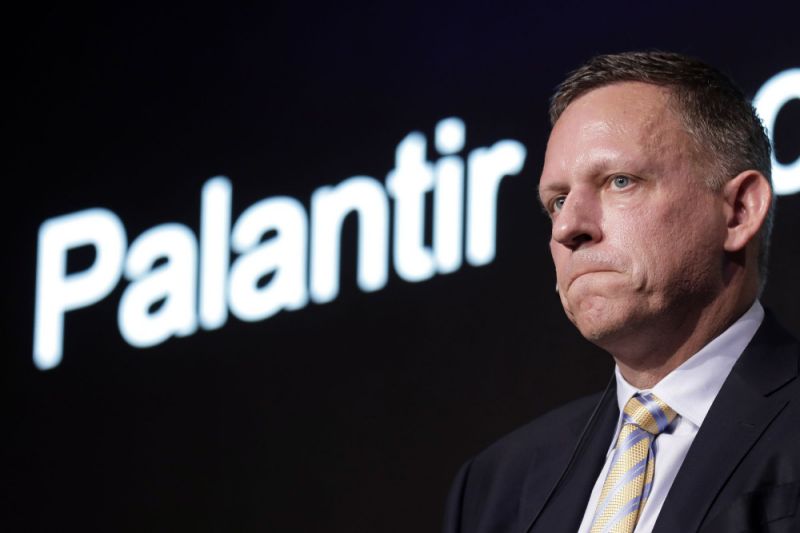Who’s Hot and Who’s Not in Tech’s Rush to Go Public

(Bloomberg Opinion) — The market for technology initial public offerings is white hot, and a herd of new unicorns is stampeding toward the public markets to take advantage of it. But not all unicorns are created equal.
Certainly the area with the most excitement is software. Investors are bidding up the sector on rising enthusiasm over the digital transformation of companies and the secular shift to cloud computing. According to Bloomberg News, 18 software companies have gone public this year, raising $5.5 billion in aggregate. Impressively, the stocks have generated nearly triple-digit weighted average returns from their offering prices.
It is no wonder other software firms are trying to go public before the enthusiasm subsides. Already this week, several companies have filed their offering prospectuses — including Unity Software Inc., which makes a video game engine; Asana Inc., which makes project management software; and Sumo Logic Inc., a data-analytics company. But the two most interesting may be Snowflake Inc. and Palantir Technologies Inc. — for different reasons.
Snowflake stands out as perhaps the most promising of the bunch. The data-warehousing company checks all the boxes as a best-in-class cloud-software market leader with an open-ended opportunity for growth. According to Bloomberg Intelligence analyst Mandeep Singh, only 30% of data analytics is now performed in the cloud, putting Snowflake in a great position to take share from the legacy on-premise vendors. And its results have been stellar. In its latest quarter ending in July, Snowflake’s sales increased 121% compared with the period a year earlier, a markedly higher growth rate versus other public cloud stars such as Datadog Inc.
On the other end of the spectrum is data software and services company Palantir, which serves many government intelligence and military agencies. First, its financials are lackluster. While Palantir Chief Executive Officer Alexander Karp bizarrely criticizes other Silicon Valley companies in its prospectus for not knowing “how society should be organized or what justice requires,” at least Big Tech knows how to make money. Despite being founded 17 years ago, Palantir has yet to turn a profit and has a stunning accumulated earnings deficit of nearly $4 billion. For example, the company lost nearly $600 million in 2019 alone. (Earlier this year, Palantir told investors it expects to break even this year.) A company nearly two decades old should be closer to profitability. Second, there are significant corporate governance concerns. The filing for a direct stock listing outlined a multiclass share structure that gives its co-founders — including billionaire Peter Thiel — essentially 50% voting power and thus permanent control of the company even if they sell the vast majority of their shares. That’s not a great look after the super-voting share debacle last year surrounding WeWork and its founder, Adam Neumann.
And then there is the customer concentration problem. Palantir disclosed that its top three customers accounted for nearly a third of its sales over the last two years. This may become a bigger issue next year. While the company has wrapped itself in patriotic language, vowing never to work with the U.S.’s global adversaries, there’s still a big political risk. In its filing Palantir admitted its business may be impacted by “shifts in the political environment and changes in the government and agency leadership positions in connection with the 2020 presidential election.” Under a potentially new administration next year, it could find government contracts more difficult to procure.
So investors need to be prudent. Last month, I wrote about how the frothy market may be a recipe for some on Wall Street to try to take advantage by bringing out second-tier offerings — specifically calling out Rackspace Technology Inc. as being particularly suspect.
Earlier this month, Rackspace’s debut turned out to be the worst-performing technology IPO of the year, falling below its $21 debut price even after its underwriters were forced to price it at the low end of the initial range. Investors should be concerned that Palantir could join it on that tier.
This column does not necessarily reflect the opinion of the editorial board or Bloomberg LP and its owners.
Tae Kim is a Bloomberg Opinion columnist covering technology. He previously covered technology for Barron’s, following an earlier career as an equity analyst.
bloomberg.com/opinion” data-reactid=”33″>For more articles like this, please visit us at bloomberg.com/opinion
Subscribe now to stay ahead with the most trusted business news source.” data-reactid=”34″>Subscribe now to stay ahead with the most trusted business news source.
©2020 Bloomberg L.P.




